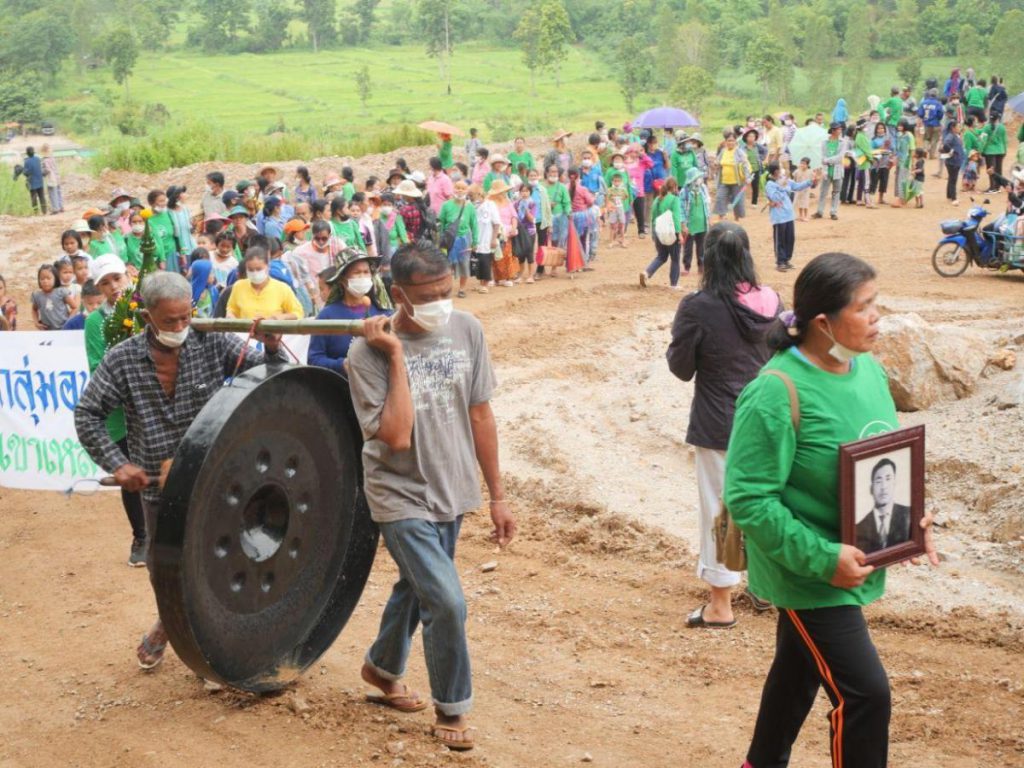Thai villagers ‘reclaim’ land after 26-year fight over mine

Villagers in a near three-decade battle against a mine in northeastern Thailand said they had reclaimed land that was allocated for quarrying despite their objections, reflecting a growing trend of community action against industrialisation.
Villagers in the Nong Bua Lamphu province said they never consented to the land being used for mining and had occupied the mining area last week after the permit expired.
Villagers said that the mining had affected their health and the environment for 26 years, and that they would oppose any move to renew the permit. Instead, they pledged to turn the 36-hectare (89-acre) area into a community forest.
“We ask the government to realise that the area can no longer be used for the mine,” said Wilai Anuwet, a member of the Khao Lao Yai-Pha Jun Dai Community Forest Conservation Group, that has led the protests.
“We are turning the quarry mine and stone mill into a garden and community forest. Even if it takes another 10 years, our determination will not fade,” she said late on Monday.
Villagers said that the mining had affected their health and the environment for 26 years, and that they would oppose any move to renew the permit
The mining permit was issued in accordance with the law, said Santi Laoboonsaeng, deputy governor of Nong Bua Lamphu province, adding that the environmental impact assessment of the area did not show any irregularities.
“I am waiting for the academic evidence … that says the mining destroyed natural resources,” he said.
Thor Silasitthi Co, the Thai company that previously mined the land, could not be reached for comment.
Protests have erupted in Thailand in recent years as evictions from forests and farmland have risen to make way for mines and power plants that villagers say are hurting the environment and their livelihoods.
Earlier this year, public hearings for an industrial project in southern Thailand were postponed after locals said that a lockdown for the coronavirus could see the plans approved with little scrutiny.
Meanwhile, villagers in northern Thailand who successfully campaigned against a community forest from being destroyed for an industrial zone are the recipients of a United Nations award this year.
The Thai government has vowed to review conflicting land claims and resolve such cases quickly.
In Nong Bua Lamphu province, about 4,000 people in six villages have been impacted by pollution and damage to their homes from explosions at the mine, according to local activists.
Villagers said they had also faced threats and intimidation.
Four villagers were killed between 1995 and 1999, and no one held responsible, according to human rights group Protection International, which has recorded more than 70 killings of human rights activists in Thailand during the last 50 years.
“Authorities must ensure the safety and protection of these human rights defenders,” said Pranom Somwong, Protection International’s Thailand representative.
“The community’s request to shut down mining and rehabilitate the forest is reasonable,” she told the Thomson Reuters Foundation.
An official at the National Human Rights Commission of Thailand said they had asked the police to ensure the security of the villagers.
(Reporting by Rina Chandran; Editing by Michael Taylor)
{{ commodity.name }}
{{ post.title }}
{{ post.date }}




Comments